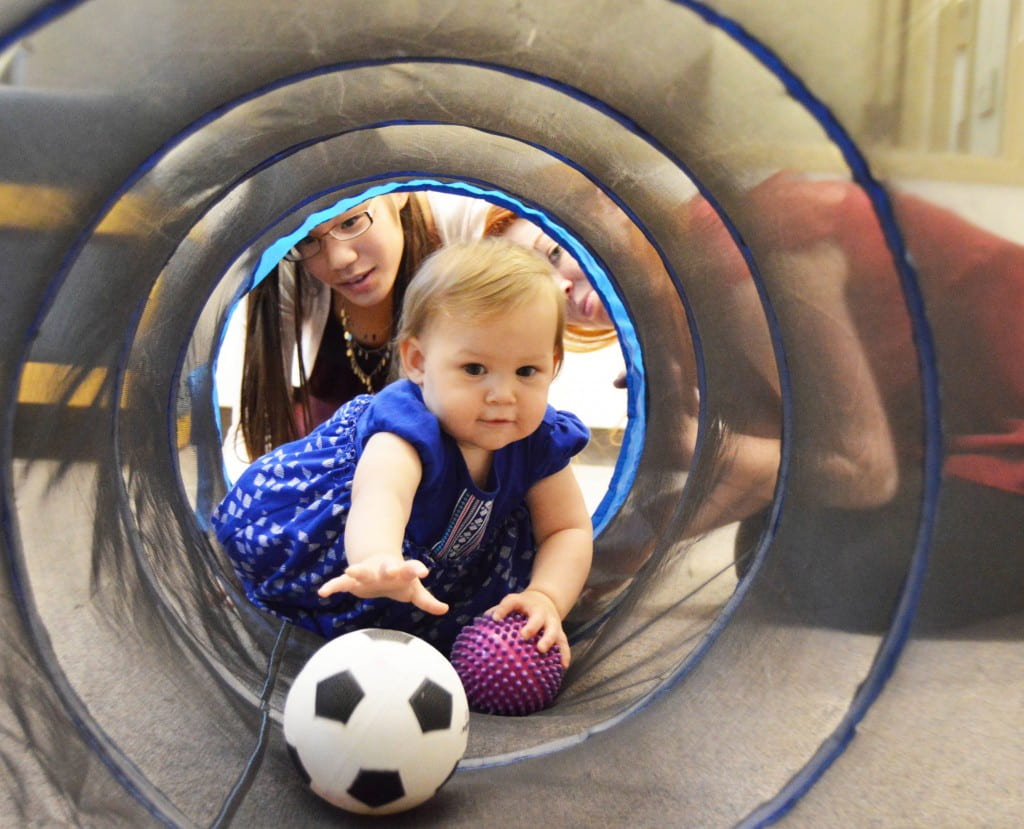
Home


Baby Lab
At the Early Child Development Lab we explore how learning occurs in the first few years of life. Learn more about the Baby Lab.
Research Interests
Our research group has been working on multiple lines of projects, to understand how learning occurs in the first few years as babies and young children interact with parents in everyday activities that involve books, toys, and technology. We are particularly interested in cultural ways of learning that are supported by families from different backgrounds.
One strand of our research examines how babies learn through everyday, recurring activities with guidance from their caregivers, family, and cultural community. We take a culture-centered approach to studying diverse ways in which children develop culturally unique strengths from their early experiences at home and with the community. Our research endeavors involve cultural analysis, theory bridging, and empirical studies as exemplified in recent publications.
Our research on parent-child interaction shows that when attempting to teach their babies, parents from different cultural backgrounds provide unique guidance that is rooted in their cultural values and beliefs. The cultural variations in parental guidance underscore the importance of considering diverse approaches and activities in studying and supporting children’s learning before and after they enter school.
Our research on infant cognition shows that babies under one year old can learn a new concept through watching just a few examples, and that hands-on experience reduces the number of examples needed. Moreover, babies transfer their learning across different modalities, from visual perception to hands-on action, and vice versa. Finally, our work demonstrates the crucial role of linguistic assets for learning and argues for a strength-based, as opposed to deficit-based, approach to studying human development.
We also study the use of interactive technologies by young children and families to see how families navigate various challenges, as well as potential benefits, that new technologies bring to bear. For example, in a previous project funded by the National Science Foundation (NSF 1617253), we collaborated with researchers in Computational Media, Computer Science, and the medical fields (Otolaryngology and Speech Pathology) to study how interactive technologies facilitated cleft speech therapy at home for children from 2 to 5 years old; we did so by drawing on evidence-based developmental findings in the participatory design process.
The new NSF IGE (Innovations in Graduate Education) grant (NSF 2429624) allows us to extend the strengths-based research approach to improving STEM graduate education and training. Aiming to mobilize community cultural wealth that students from underserved backgrounds bring to graduate training, we collaborate with colleagues in social psychology and astrophysics to test concrete steps that enable higher-ed institutions to acknowledge and foster these strengths.
Courses
Undergraduate
Psyc 10: Intro to Developmental Psychology
Psyc 119E: The World of Babies
Psyc 194A: Advanced Developmental Research
Graduate
Psyc 225: Intro to Developmental Research
Psyc 244A: Cognitive and Language Development
Psyc 247: Special Topics in Developmental Psychology
Psyc 290C: Professional Development